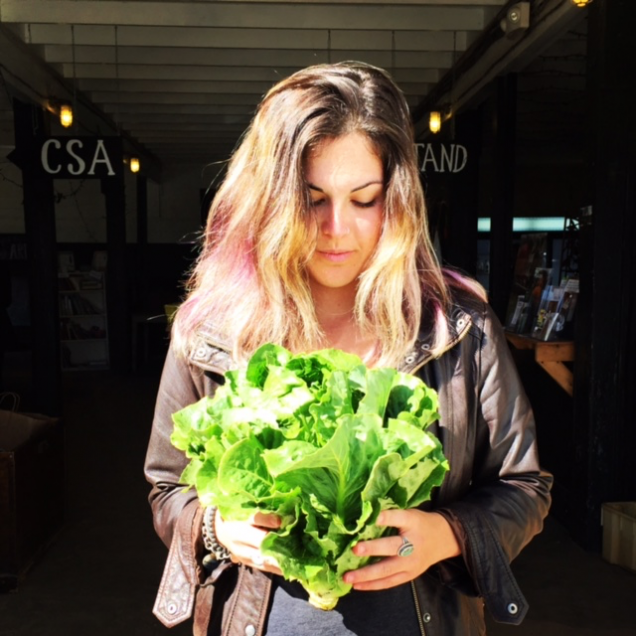Decoding Alternative Food Communities
by Ariel Knoebel

I stared down at the entangled green tendrils in the dirt, thinking to myself “What is tatsoi, anyway?”
I was embarrassed to ask. Everyone else seemed to know exactly what they were doing as they crouched between the rows of bushy greens, chatting while weeding with expert hands until perfectly straight rows emerged down the field. Eventually, I got over my first-day-of school jitters and spoke up, swallowing my pride for the sake of the soon-to-be-uprooted plants in my hands. From there, I learned not only about the small oval shaped leaves I was weeding around, but all about the farm crew members, where they came from, and what drew them to the hot, dusty, hard work of growing food for the community.
Through my research for my Gastronomy Thesis project, I was able to meet a diverse group of people working to build community through alternative food. I spent six months digging in the dirt on local farms, wandering around backyard gardens, cheers-ing at community dinners, and talking to people about why the way they eat matters. Participation in alternative food communities leads to a shift in time commitment and personal priorities, assigning a new importance to usually invisible domestic labor. Members of these communities connect over the dinner table; it becomes the place where community, moral values, and self-identity converge.
The most exciting part of my research emerged for me through the interviews I conducted with my participants. Nothing is more affirming for a budding scholar in a new field than to hear someone speak with absolute conviction about the importance of your area of study. My day job falls in the fitness realm, so I spend a lot of time explaining to people that I am not actually a dietician, not a nutritionist, but a sort of food social scientist—and that doesn’t usually answer people’s questions completely.
My thesis project allowed me the opportunity to learn how to speak to the aspects of food studies I find vitally important, and to do the rewarding work of contributing new knowledge to the field. I spent many evenings and days off huddled in the corner of a coffee shop trying to decode modern Marxist theory, hoping to find a theoretical home for my thoughts on alternative food economies in the modern world. I often felt like I would never finish, or that if I did I would never write something worth reading, but occasionally I would put an idea on paper and think to myself, “well that’s something worth sharing with the world.” As a researcher and a writer, I think that’s about as much as you can ever hope for. In the end, with a paper finished and bound, a recent acceptance to present at a conference, and a renewed love for the ivory tower, I feel ready to take on whatever comes next.